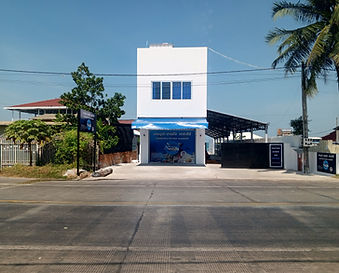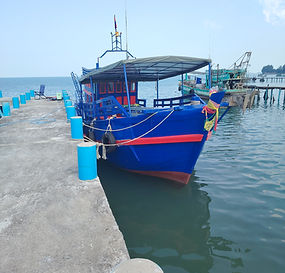


We are Conservation Cambodia, a vital component of Cambodia Diving Academy situated in the coastal town of Sihanoukville, Cambodia. Our approach to conservation is twofold: underwater, we focus on safeguarding our local reefs, while above water, we strive to raise awareness among Cambodia's local population and beyond.
Our overarching objective is to establish a sustainable marine ecosystem through the creation of a long-term coral propagation nursery. Additionally, we aim to develop an information center that educates individuals about sustainable marine practices, fostering a greater understanding and appreciation for our oceans.


Healthy coral reefs and a clean environment are essential components of a sustainable ecosystem. They provide vital habitats for marine wildlife, support local livelihoods through tourism, and contribute to the overall well-being of coastal communities. However, human activities such as pollution and climate change pose significant threats to coral reefs, particularly in the Koh Rong archipelago.
Issues like garbage pollution, destructive fishing practices, and irresponsible diving behaviors can cause extensive damage to coral reefs, inhibiting their growth and leading to their decline. Anchoring on the reef, in particular, can cause direct physical damage, while pollution and climate change contribute to coral bleaching and disease.
It's crucial to protect and support the regeneration of coral reefs through conservation efforts. By implementing sustainable practices, raising awareness, and promoting responsible tourism and fishing methods, we can help preserve these valuable ecosystems for future generations.

As a volunteer, you'll engage in various aspects of marine conservation, with a primary focus on our coral nursery project. This involves tasks such as constructing rock beds or preparation tables, gathering broken coral fragments, securing coral to the rocks, and conducting routine inspections to ensure their health and growth.
Participating in reef clean-ups is another vital aspect of your role, helping to remove debris and rubbish that poses a threat to the health of the reefs. This activity is essential for maintaining a clean and safe environment for marine life.
Once a coral has reached a healthy state in the nursery, you'll have the opportunity to assist in their transplantation back to local reefs, contributing directly to the restoration and regeneration of coral ecosystems in the area.
Your involvement in these activities will not only provide hands-on experience in marine conservation but also make a tangible impact on the health and sustainability of coral reefs in the Koh Rong archipelago.

We face numerous challenges in our marine conservation efforts in Cambodia:
-
Illegal Fishing: Over 10 islands in Cambodia are subject to illegal fishing activities, which threaten the sustainability of marine resources and the livelihoods of local communities.
-
Destructive Fishing Practices: Dynamite fishing, cyaniding, and trawling remain common despite their detrimental impact on marine ecosystems. These practices lead to habitat destruction and the depletion of fish populations.
-
Reef Degradation: Coral reefs are being destroyed at an alarming rate, and natural regeneration processes are unable to keep pace with the damage. This loss of habitat affects marine biodiversity and compromises the resilience of coastal ecosystems.
-
Limited Resources: The vast coastline and numerous islands pose a significant challenge for marine protection efforts. The Cambodian government and local communities lack sufficient resources and capacity to effectively combat illegal fishing and enforce conservation measures.
-
Socioeconomic Impact: Illegal fishing not only harms marine biodiversity but also has negative consequences for local communities. Around 17% of families in the surrounding islands struggle to obtain enough seafood for their basic needs, highlighting the social and economic implications of unsustainable fishing practices.
Addressing these challenges requires concerted efforts from government agencies, local communities, and conservation organizations. By raising awareness, implementing stricter regulations, and promoting sustainable fishing practices, we can work towards preserving Cambodia's marine ecosystems for future generations.

Coral farming is an innovative approach to marine conservation that is relatively new to Cambodia. Conservation Cambodia is pioneering this effort and is the sole organization undertaking coral farming, receiving full support from the Cambodian Government.
Our coral farming initiative involves collecting broken or damaged coral fragments, often caused by anchoring or scuba diving activities, and nurturing them on our coral farms. This practice is employed worldwide with slight adaptations to suit local conditions, and it has demonstrated remarkable success, with visible growth rates observed within just six months.
By rescuing and cultivating damaged coral fragments, we not only contribute to the restoration of reef ecosystems but also help mitigate the impacts of human activities on marine biodiversity. Our partnership with the Cambodian Government underscores the importance of coral farming as a viable strategy for sustainable marine conservation in Cambodia.
